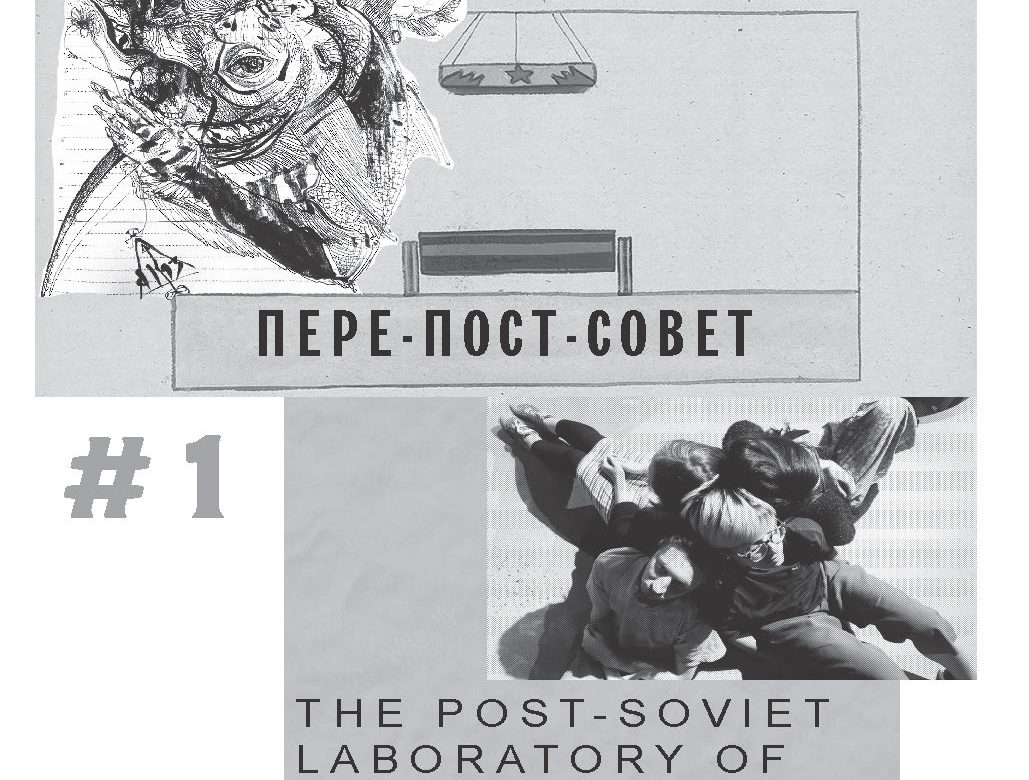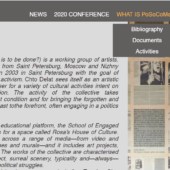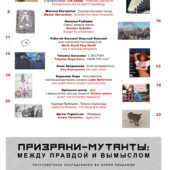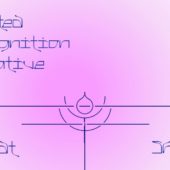Editorial: Five Challenges That Make Us Think about the Post-Soviet Again
by Dmitry Vilensky
In your hands is the first issue of the newspaper put out by the recertification course on post-Soviet studies. It is based on works individual and collective, already realized and in-progress, as well as position statements from course participants. This course/laboratory originated as an attempt to make sense of our situation and place in a swiftly changing world, to understand the laws of local development and our affects, traumas, wounds, and hopes.
At first glance, the subject of the post-Soviet seems worn-out, and it is not clear how much more rehashing it can take. It is true that it feels like for the new generation, the subject of the post-Soviet looks unappealing, worn-out, and uninspiring. At the same time, you could also say that only now is this subject beginning to take on its new meaning, and it is important to understand why. I would describe these factors as: >>>>

you can down load a publication (Russian-English) at this link
perepostsoviet – full – spreads
and here page by page
>>>>>
1) The return of geopolitical conflicts that have their origins in Cold War times
It is obvious that this new stage in the “West vs. Russia” standoff started a long time ago. We can trace its genealogy in different ways, perhaps recalling the expansion of NATO to the east, in violation of initial agreements with Russia. Or, we might recall the reaction to the bombing of Serbia (1999), the open military conflicts in Georgia (2008), Ukraine (2014) and Syria (2015) and a number of other growing conflicts in Africa and everywhere. The situation has deteriorated and the practice of splitting up into camps is back in a new configuration.
Russia is once again in the spotlight of the media, the news, and, of course, various kinds of studies—you have to know your enemy. But the enemy doesn’t only need be studied, it needs to be isolated, and a whole range of sanctions, official and unspoken, are bringing that about. And cultural workers in Russia, regardless of their relationship to the government, are cut off both from international funding sources and from the possibility of creating civilian international partnerships. This situation inevitably leads us to analyzing the next challenge,
2) The reproduction of old models of Eastern European and Russian subalternity in a new geopolitical situation.
This means the formation of a subordinate subject in an oppressed position relative to the “Western master,” who administers resources and produces languages of inclusion and exclusion.
A colonizing attitude towards Russia and to everything east of the Oder is not a fiction but a perfectly material fact that, apparently, has not gone anywhere, just like the series of wars, conflicts, and differences in development. Even Marx despised various forms of “Asiatic barbarism,” which for him included Russia, which he considered a hopelessly backwards country that needed time to catch its development up to the level of the capitalism of his day. This position to some extent resembles the current liberal perspective of so-called developed and democratic counties.
It is curious and important to note that the “ideology of Putinism” is built on a sort of perverted reading of decolonial theory. The local idea of “sovereign democracy” as a political space free from judgement and interference from without (“we’ll torture our serfs however we want, or if we feel like it, we’ll take care of them like God commanded us to…”) gives us grounds for such an observation. The Russian government’s persistent appeal—“let’s speak as equals”—is an insistence on their rejection and old resentments.
What alternative can artists and cultural workers offer? I would propose that we call on the aid of the Soviet legacy and reinterpret it as a continuation of a universal project outside of a Western context. We need a procedure for reinterpreting the idea of the universal world. It could be based on the simple declaration that “without me, the world is incomplete.” This appeal to completeness and to the possibility of a meta-position is, it seems to me, the only way to overcome subalternity. It is important to insist that universality is not Western, not colonial, not patriarchal—it is nobody’s. It has, as they say, a zero-level of belonging. That is what we can attempt to take from the Soviet project, but only by radicalizing these ideas even further. It is worth trying to disentangle universality even from the concept of class and the human itself.
3) This new interest in post-Soviet studies is also dictated by the growth of the ethical turn in the public sphere and in art, where the legitimacy of an artistic, journalistic, or academic statement is increasingly judged according to the principle of the speaker’s direct/authentic belonging to an event, place, or group of speakers. It is no longer possible for us to speak for someone without establishing a relationship of belonging. But these relationships need not be understood in an essentialist way, as identity politics proposes we do. They are relationships of becoming and solidarity, and this is precisely where the most import lesson of the Soviet experience is to be found.
4) A new wave of anticommunism, paradoxically appearing at a moment of complete defeat for the left
It is not an exaggeration to say that the whole 20th century was a century of struggle between capital and communism. Capitalism has always been willing to draw on the most reactionary forms of fascism, nationalism, fundamentalism, military juntas, genocides, etc. in this conflict. We can also say that capital was victorious. But for some reason, anticommunism hasn’t gone anywhere and is now undergoing new forms of resurgence—whether the most hackneyed forms of decommunization in the post-Soviet space, as in Ukraine, or the well-known post-McCarthyist form of political struggle, as in the US and Latin America. That is, the idea of communism becomes a kind of inherent characteristic of the human species—something indefinite and ineradicable—an insistent desire to move away from the coercion of private property and exploitation. That is why today’s anticommunism is an attempt to battle these eternally returning spectres, a kind of attempted genocide against the spectres of the universal, with many-ton silver bullets and rockets for stakes.
5) The spectre zone. Experiments in applied post-Soviet hauntology
The Soviet Union was a unique place that existed not only in an imperfect material dimension, but also as the space of a pure idea of communism, a place that proved the impossible—people’s relationships, their everyday life, and the economy can develop in a unique way without private property. Today this place has lost its materiality altogether and finally turned into a universal spectre that is worth building a relationship with—whether we want it or not, the spectre will haunt us, especially throughout its natural habitat.
1989 was the year of Jacques Derrida’s first visit to the USSR. We too should look to the general ideas of “hauntology” and see what kind of new relationships with spectres are possible now, and how the spectres are feeling after 30 years. Rephrasing Derrida’s question, we can say that if the Soviet Union was always spectral, what does it mean to say it is now dead? And what does that mean for those who live there?
Perhaps the re-post-Soviet studies of our laboratory are this attempt to reestablish contact with the spectres who are worth partnering with as we defend our place and make it habitable.





